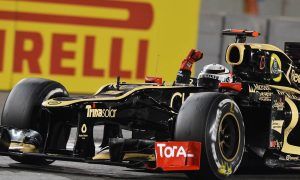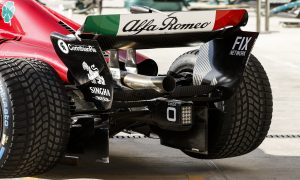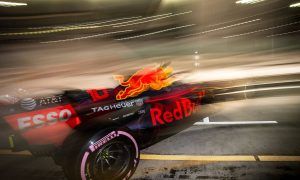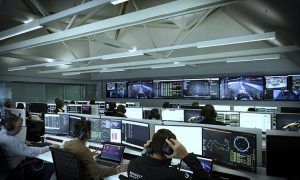THE ART OF STAYING AT A CLOSE DISTANCE
From the outside, you could think that a racing team can work pretty much on its own, between the owner, the technical director, the team manager and an army of engineers. That would be a mistaken assessment: a bona fide leader, resolved and capable of delegating, is needed to steer the ship and set the right pace.
“When you are managing 650 people, you don’t pick the quality of the carbon fibre!” Boullier continues. “You have to delegate, there is no other choice. In F1, perhaps more than in any other industry, you are overseeing a group of experts. But there needs to be a boss. Engineers are powerful, but they can’t run a company: you must have a strategy, and someone making sure it is enforced at all times.”
McLaren’s aerodynamics department, which had become the Achilles’ heels in recent years, has been revamped with job descriptions and targets being properly re-redefined.
“We wanted to give a clear technical and managerial direction to the group. Drawing upon his impressive scientific expertise, [McLaren chief engineer] Peter [Prodromou] takes on the technical leadership, while Guillaume Cattelani, who also has a PhD in aerodynamics, brings a pragmatic dimension in complement. It took several months but the department is very efficient now.
“Everybody really gets involved because they know their opinions are heard. I spent my first six months in McLaren listening to aerodynamicists’ complaints and grievances. Now, they hardly come to see me. Instead, they say: 'That’s a waste of time Eric, everything is under control!’ In 2014, we would increase the aerodynamic load by two points of downforce in a fortnight. Now, we find 10 over the same period.”
In a way, the team principal needs to be aware of almost everything without being at the factory all the time. He also has to make the decisions without interfering in everything. Striking that kind of balance is no easy feat.
“This might be paradoxical but good management also means staying in your place. Since you are always very busy, you cannot attend all meetings, even the ones you perhaps have a natural penchant for.
“As a result, you maintain the objectivity that others, who are more involved, might have lost. As a race engineer, I remember one time when the driver and I made a setup mistake just because we were flat-out and not critically distant enough.
“I am also consulted on race strategy, where nothing is set in stone. The team principal might be asked to make the call in a specific situation like shall we stop one lap earlier or later for instance.”
On the other hand, the Frenchman must be accountable to McLaren Technology Group executive chairman and CEO Ron Dennis. Having shaped the team to his image and liking, Dennis still gives some leeway to his racing director.
“I have my independence,” Boullier explains. “It is up to me to take measures but I naturally keep him informed. Working with the man who founded all this commands respect, but that does not prevent me from going to the office every morning like I did at DAMS and Lotus.
“At the factory, I am here to meet people, solve problems, and make decisions. I don’t really have time for anything else. I live 10 minutes away from work and I barely have the opportunity to go for a swim in the pool located in the basement. Motor racing is my life. First and foremost, it requires a lot of work and a 120% personal investment. This is part of the trade and the industry.








